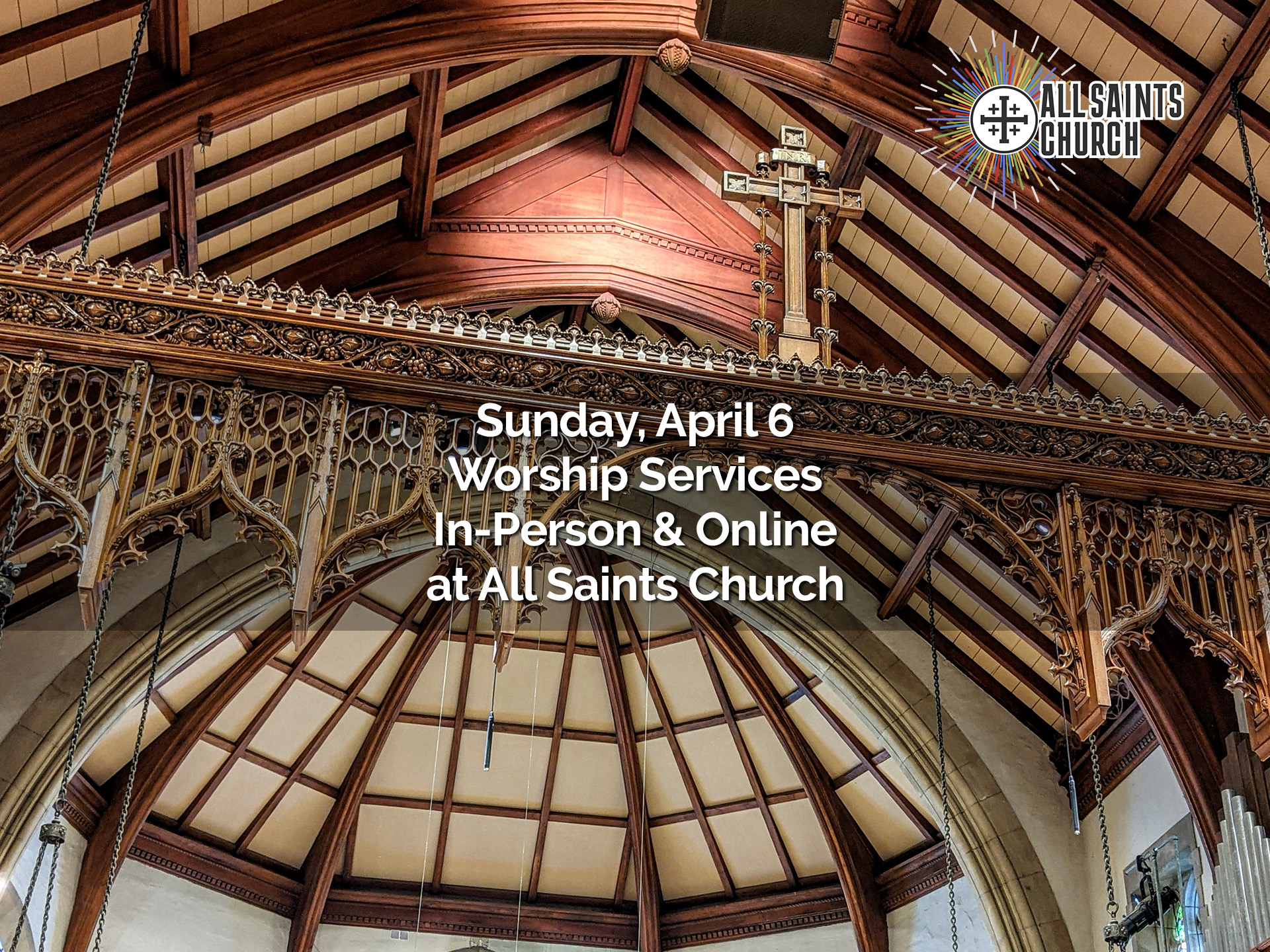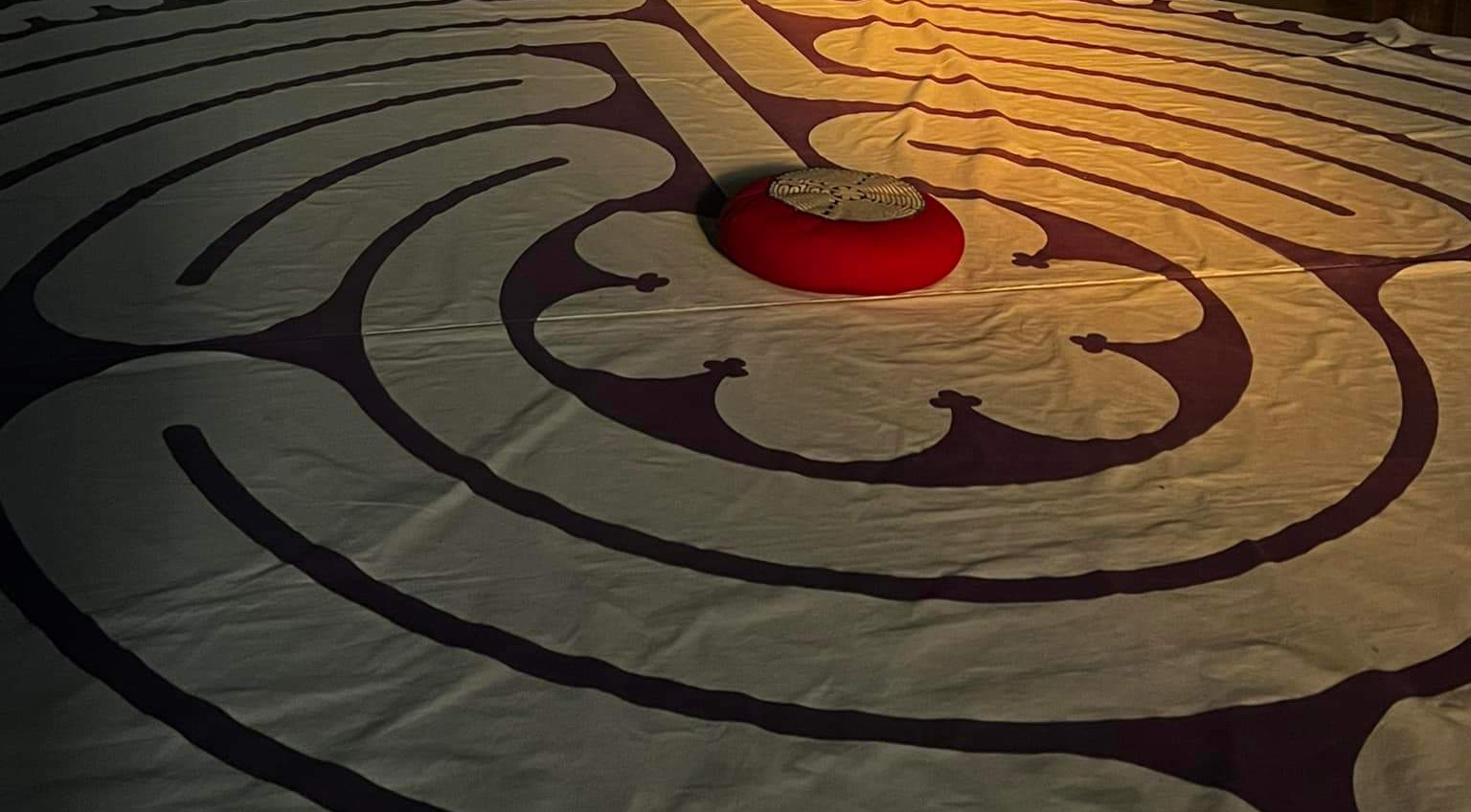Sermon preached by Susan Russell on Thanksgiving Eve 2019 at All Saints Church in Pasadena.
Of Grace and Gratitude and Quid Pro Quos
If you were in church on Sunday
you heard Mike preach about our call to be “artists of the impossible.”
You heard him remind us that we who walk with a revolutionary Jesus
have always been called to be the alternative community
to the systems of domination in which we live …
not mirroring them but showing there is a different and better way.
A different and better way that begins by us first imagining …
just imagining …
that the way things are isn’t the way things have to be.
That in the words of Andre Henry,
“It doesn’t have to be this way.”
And a different and better way that includes remembering —
reversing our amnesia —
about who we were created and called to be …
something we do every single time we gather around this table;
every time we share the bread and wine made holy;
every time we make Eucharist together.
You may know or you may have forgotten …
or may have never heard …
that the word “Eucharist” comes from the Greek word eukharistia —
which literally means ‘thanksgiving.’
And so what better time than Thanksgiving Eve
to explore what it means to be a Eucharistic people …
and to examine the connection
between practicing gratitude and dismantling domination.
And what better summary of that connection
than the reading we just heard from Diana Butler Bass.
Historian, author and friend of All Saints Church,
in this piece* excerpted from a longer interview with Sojourners Magazine,
Diana brilliantly summarizes both the historical and theological context
of our call to be thankful people —
to practice gratitude as a radical act
of imaging a different and better way
than the domination systems that surround us …
that try to seduce us into buying the myth of the quid pro quo …
something we’ve been hearing a lot about lately.
In ancient systems of gifting and gratitude, Diana writes,
the quid pro quo — which is Latin meaning literally “something for something” —
was also used as a means of patronage, power and control.
The emperor or king gave his subjects the gifts of protection and provision.
In return subjects offered loyalty, homage, service, and taxes.
If you failed to return the ruler’s favor by not paying a tribute
or refusing to send your son to serve in the army,
you were branded an ingrate —
a crime punishable by denial of favor, reduction in rank,
seizure of property, enslavement or even death.
Gratitude in this system was not a feeling. It was the law.
And that was the system the radical rabbi from Nazareth
came to disrupt in 1st century Palestine
just as it is the system those who follow the revolutionary Jesus
continue to be called to disrupt in 21st century Pasadena.
It is the vertical system of power-over
that the world keeps telling us is “just how it is”
vs. the circular system of power-with
that Jesus showed us how it ought to be —
the different and better way of being that we …
as artists of the impossible …
are called to bring into being in our time just as Jesus did in his.
Diana writes “The Thanksgiving myth sticks
because it tells the story of who they really wish they were” …
and I would add “and reminds us who we are called to be.”
We are an aspirational people.
In our nation we pledge to the ideal of liberty and justice for all
and in our church we promise to respect the dignity of every human being.
And every day we listen to the breaking news
of how far we have yet to go before that pledge is a reality.
And every day we pray for the wisdom,
the strength and the courage to keep that promise.
We know that we are not yet a nation
where liberty and justice for all is reality for everyone.
Indeed, the last few years have set us back
rather than moving us forward in the struggle to make that dream a reality. Nevertheless, we persist … because we are an aspirational people; we are artists of the impossible.
And as artists of the impossible one of our mediums is gratitude.
Loved unconditionally we are called only
to love each other unconditionally in return …
the only quid pro quote is to love as we have been loved …
following the revolutionary Jesus
who loved us enough to show us how to love one another as God loves us.
For the love of God is broader
than the measure of our mind;
and the heart of the eternal
is most wonderfully kind.
If our love were but more faithful,
we should take her at her word;
and our lives would be thanksgiving,
for the goodness of our God.
Our lives would be thanksgiving for the goodness of our God …
and as artists of the impossible we would paint a new world into being …
the kingdom come on earth as it is in heaven.
A brushstroke at a time.
A conversation at a time.
A protest rally at a time.
An election at a time.
An inch at a time.
On this Thanksgiving Eve,
as we gather around this Thanksgiving table
to share the bread and wine made holy,
may we be given grace to keep one another alive to survive and thrive,
to breach any boundaries between us,
and to go out into the world as artists of the impossible made possible
by the indestructible power
of God’s inexhaustible love.
Let us pray: [2016 prayer by Diana Butler Bass]
God, this Thanksgiving, we do not give thanks. We choose it. And we will make thanks, with strong hands and courageous hearts. When we see your sacred generosity, we become aware that we live in an infinite circle of gratitude.
We will not let anything opposed to love take over this table. Instead, we choose to see grace, free and unmerited love, the giftedness of life everywhere, as the tender web of all creation. In this choosing, and in the making, we will pass gratitude onto the world.
Thus, with you, and with all those gathered here, we pledge to make thanks. And we ask you to strengthen us in this resolve. Here, now, and into the future. Around this table. Around the table of our nation. Around the table of the earth. Amen.
===========
*A Reading from Sojourners Magazine by Diana Butler Bass
Every time a pyramid shows up in the Bible, it’s always a bad thing. It is never good!
God is angry about pyramids. God does not like Pharaoh. God does not like the Tower of Babel. God does not want Israel to have a king. You name it. But God really likes tables — in Scripture, God likes horizontal geometries, not vertical ones.
Even when you have visions of God on a throne in the book of Revelation, what you have is a throne that has come into the center of the world. It is surrounded by trees, located within the heart of creation itself. All hierarchy collapses in the book of Revelation, and everything emerges as being on the same spiritual plane. It’s really a restoration of Genesis, for God and Adam and Eve and nature are all in complete harmony. I think we have to ask ourselves why have we been on this constant quest to structure even spiritual practices like gratitude into our vertical power style when the whole point was always a table practice.
The most ancient image — the sort of the primal image — that white Americans have about gratitude is the Thanksgiving table. This idea of natives and colonists sitting around a table, sharing food to keep one another alive to survive and thrive, and to breach the boundaries between them.
Now we know, of course, that it didn’t work that way … that it was a romanticized myth. But myths are really important because they tell us who we want to be. Even while colonists are committing genocide, and removing native people from their lands, and all that hideous stuff — the Thanksgiving myth sticks.
It sticks because it tells the story of who they really wish they were.



